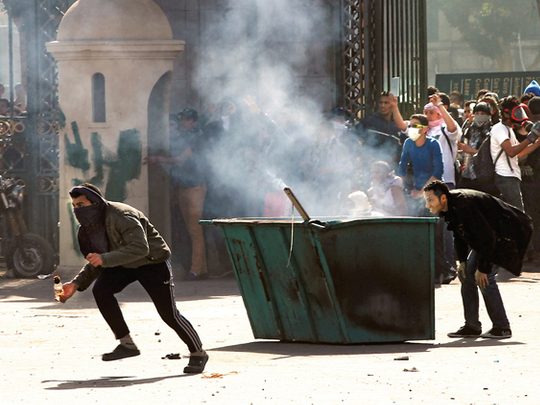
Almost all religious movements throughout modern history have somehow miserably failed to carry through their messages, particularly when faced with political challenges of a secular nature. Currently, brutal attempts by the insanely narrow-minded extremist Islamist group Islamic State in Iraq and Syria (Isil) are underway to recreate a political system (Islamic caliphate) that dithered away with the demise of the Ottoman Empire about a century ago. Certainly Isil, in the unlikely event of becoming some kind of a state, is doomed to fail. Isil will simply prove unable to rule for any significant length of time, exactly as it happened to the much more moderate organisation of political Islam recently, namely the Muslim Brotherhood. The path to governance cannot be based on mixing religion with politics. This is not only impractical, but also unsustainable.
The recent failure of the Muslim Brotherhood to stay in power despite its success in Egypt’s first ever democratic and free election is in itself quite telling. Though the Brotherhood constantly claims to support democratic principles, its main publicly stated aim is to create a state ruled by Islamic law (Sharia). This aim was demonstrably and widely expressed during many public events at Cairo’s Tahrir Square and it has become the slogan of the Brotherhood’s political campaign: “Islam is the solution”.
In one of its largest rally in 2012, the Brotherhood went even further when it invited to the stage in Tahrir Square one of its prominent leaders, the Doha-based Yousuf Al Qaradawi, to address demonstrators. He ‘advised’ listeners to follow the “right path ... the path of God”. He informed people in the Square that Egypt had returned now to God’s path and called on them to “return to God”. A population, largely poor but spiritually faithful, frustrated and politically disappointed by a line of successive leaders who promised them eventual prosperity since 1952 was bound to be tricked into such a political trap.
But Saudi Arabia, with its strong policy against the Brotherhood, sent out a political message of unprecedented importance to its own population and beyond. Prior to that, Egypt had already banned the organisation and removed its president, Mohammad Mursi. The insensitive appearance of aggressive slogans such as “Islam is the solution” and “at last we found our way to God”, is highly explosive in already inflamed societies such as Egypt, and the Arab world at large. This brings back memories of the most dangerous and ugly events following the resurgence of Islamic activism in highly volatile Egypt in the early 1970s when anti-Coptic sentiment was rising among Islamist groups.
Many churches were deliberately burnt, including the historic Qasriyat Al early Rihan Church in Cairo. We could even read explicit and frequent denouncement of Copts in these groups’ pamphlets, as well as scorn heaped on them in classes for students in mosques. This had led to widening tension between Copts and Muslims and inevitably ended in clashes in Upper Egypt in 1977 and 1978, which spread later into cities and villages of the Delta. Three days of religious riots in Cairo in 1981 left at least 17 Copts and Muslims dead and more than 100 injured. Isolated incidents of Muslim-Coptic violence continued throughout 1980s, 1990s and 2000s. Fear and uncertainty among Copts and other non-Muslim minorities in Egypt and the Middle East became the dominant reality as a result of the recent rise of Islamist groups.
Most serious crisis
The recent retaliation against the Brotherhood now is highly significant. The fact that Saudi Arabia had already banned the group following a similar decision by both Egypt and the UAE puts the group face to face with the most serious crisis in its 85-year history.
The Brotherhood, throughout its history, has deeply influenced Islamist movements around the world with its cunning policy of combining political activism with charity work. The second arm of its activity is often used to recruit young people, particularly teenagers, by introducing them first to charity works and sport.
Additionally, the Brotherhood often provides schooling to many of these young people, who are poor, free of charge or for minimal fees. These schools are nominally privately-owned and carry the title of “schools of Islamic Charity Societies”.
Since the Brotherhood’s establishment in 1928 by Hassan Al Banna, branches were set up throughout the country, each running a mosque, a school and a sporting club, usually all in the same location, and rapidly attracting huge membership. By late 1940s, the group was estimated to have reached the half-a-million mark in Egypt alone with its ideas quickly spreading across the rest of the Arab world. Maybe, with the latest squeeze by three Arab countries, the group’s resources will somehow dry up and make its outreach to people more difficult to undertake.
Mustapha Karkouti is a former president of the Foreign Press Association, London.










